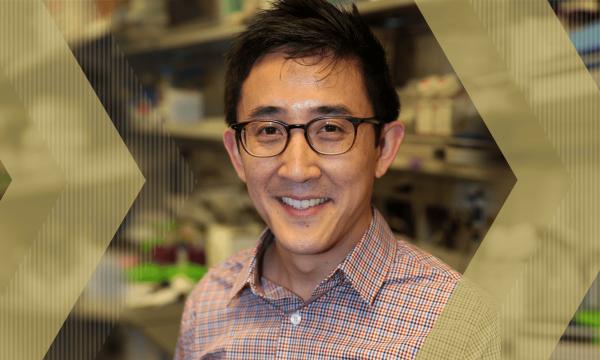For patients undergoing transplant surgeries, there is always the immediate concern of the body rejecting the new organ – be it a lung, kidney or heart. There are a few different ways the body can reject an organ, one type being T cell mediated rejection. T cells are immune cells that recognize diseases, or in this case foreign organs, and attack because they sense a danger to the body. In the worst case scenario, the newly transplanted organ is rejected, leaving the patient back at square one.
Traditionally, to track and manage T cell response to organ transplants, also known as grafts, a biopsy is done to look at the tissue to monitor the health of the graft. These biopsies are highly invasive, using large needles that can lead to pain and excessive bleeding. They are also just a moment-in-time static snapshot of the health of the graft. That’s where Gabe Kwong’s research comes in with his Laboratory for Synthetic Immunity.
“What you really want to know is patient trajectory,” said Kwong, associate professor in the Wallace H. Coulter Department of Biomedical Engineering at Georgia Tech. “With traditional biopsies, you don’t know if the transplant organ is getting better or if it’s going to get worse. The non-invasive platform that we are developing measures T cell activity. If T cells are being overactive, you can track that with our miniaturized biological sensors that probe the graft for early signs of transplant rejection. Our approach is a noninvasive solution to the biopsy.”
READ THE FULL STORY FROM THE COLLEGE OF ENGINEERING
Media Contact
Walter Rich
Keywords
Latest BME News
Jo honored for his impact on science and mentorship
The department rises to the top in biomedical engineering programs for undergraduate education.
Commercialization program in Coulter BME announces project teams who will receive support to get their research to market.
Courses in the Wallace H. Coulter Department of Biomedical Engineering are being reformatted to incorporate AI and machine learning so students are prepared for a data-driven biotech sector.
Influenced by her mother's journey in engineering, Sriya Surapaneni hopes to inspire other young women in the field.
Coulter BME Professor Earns Tenure, Eyes Future of Innovation in Health and Medicine
The grant will fund the development of cutting-edge technology that could detect colorectal cancer through a simple breath test
The surgical support device landed Coulter BME its 4th consecutive win for the College of Engineering competition.








